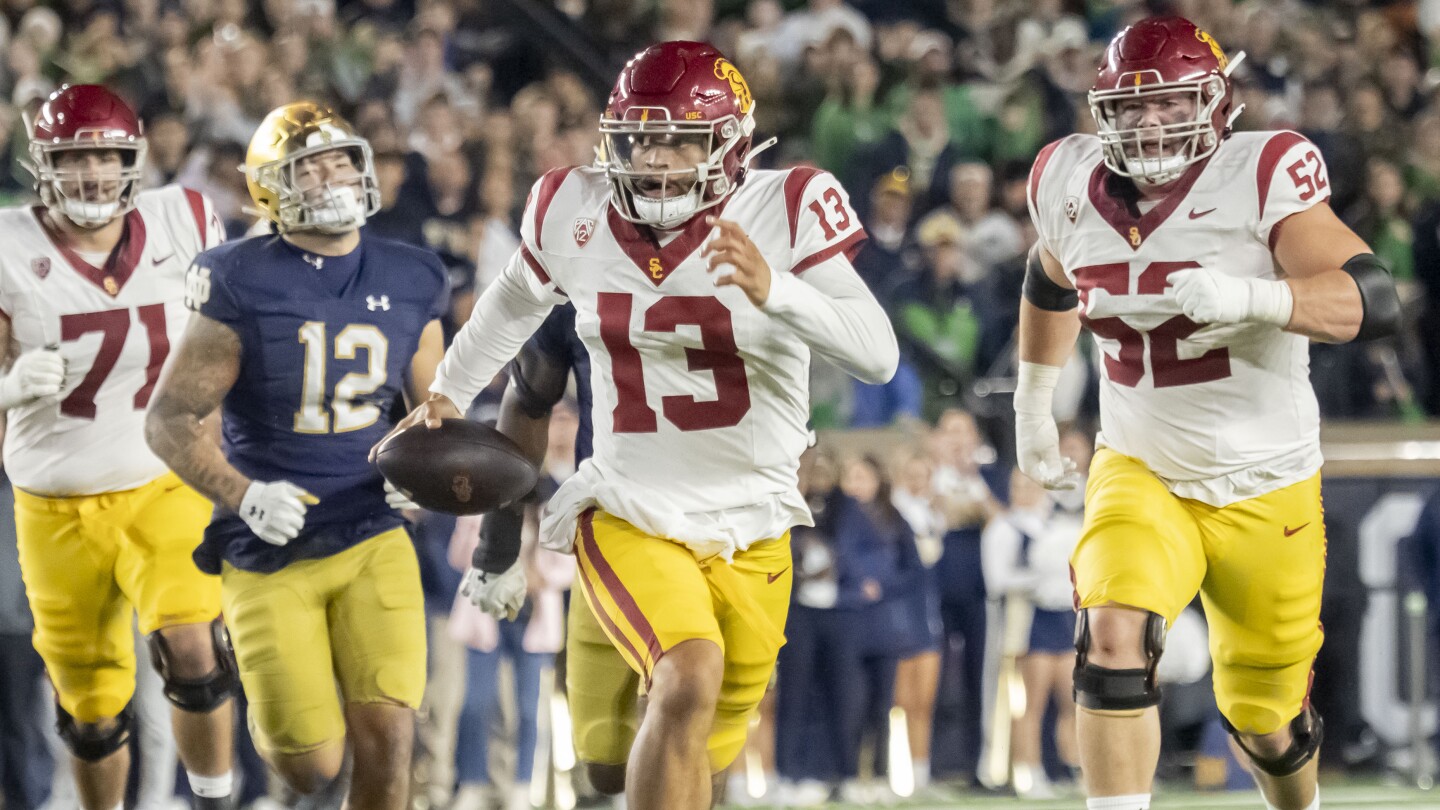The latter (and, if we could only be so lucky, final) days of Twitter/X have spawned various bot-style accounts that routinely aggregate NFL reports and stories, often with little or no context — and rarely if ever with any analysis or other value added.
Usually, these accounts post their tweets in the minutes or hours after the stories originally appear. Recently, something strange happened with one of our older stories.
On July 26, in the aftermath of a report that the NFL’s owners had adopted a rule preventing teams from giving equity to players or other employees, we reported that Jets quarterback Aaron Rodgers had been seeking a slice of ownership in his talks with the team on a restructured deal — and that the Caleb Williams camp had been making it known to prospective agents that the USC quarterback coveted a piece of whichever team he ultimately joins.
As of Saturday (the same day Williams had a prime-time clunker against Notre Dame), the story acquired a second life, thanks to multiple aggregation accounts that either had not aggregated the story in late July or that, for whatever reason (possibly to put Caleb Williams in a bad light after an unexpectedly bad game), decided to re-aggregate it now.
It’s important to remember that neither Rodgers nor Williams are currently pursuing this strategy. They can’t. The whole point of the July 26 story was to provide concrete examples of players whose desires were completely and conclusively thwarted by the new rule the league adopted. And common sense suggests that the league would not have seen the need to close the door to player equity if no player was trying to get it.
The other point made at the time was that, as to players, the rule change (which apparently was not the product of collective bargaining) amounts to collusion on its face. For non-players, it’s arguably an antitrust violation.
Regardless, it’s an old story. It’s currently a non-story. The only aspect of the story that remains viable is the possibility that someone (player or non-player) will mount a legal challenge to the league’s decision to abruptly block the ability of employees to secure equity in the teams for which they work.





